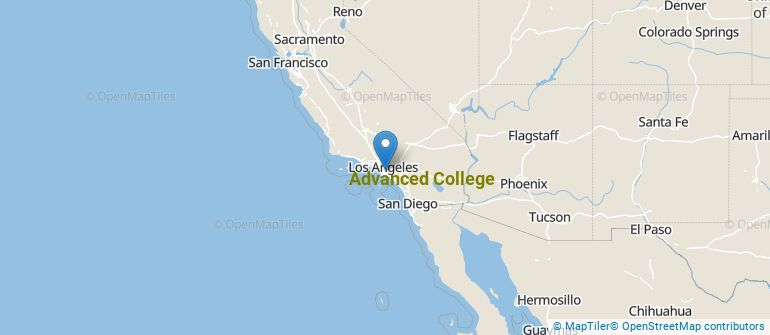 by our College Data Analytics Team
by our College Data Analytics TeamExplore the best ranked schools for the programs you are most interested in.
Advanced College was not ranked in College Factual's Best Overall Colleges report this year. This may be because not enough data was available.
Data for the student to faculty ratio for this school has not been reported.
During the 2017-2018 academic year, there were 59 undergraduates at Advanced College with 57 being full-time and 2 being part-time.
Get more details about the location of Advanced College.

Contact details for Advanced College are given below.
| Contact Details |
|---|
Footnotes
*The racial-ethnic minorities count is calculated by taking the total number of students and subtracting white students, international students, and students whose race/ethnicity was unknown. This number is then divided by the total number of students at the school to obtain the racial-ethnic minorities percentage.
References
More about our data sources and methodologies.